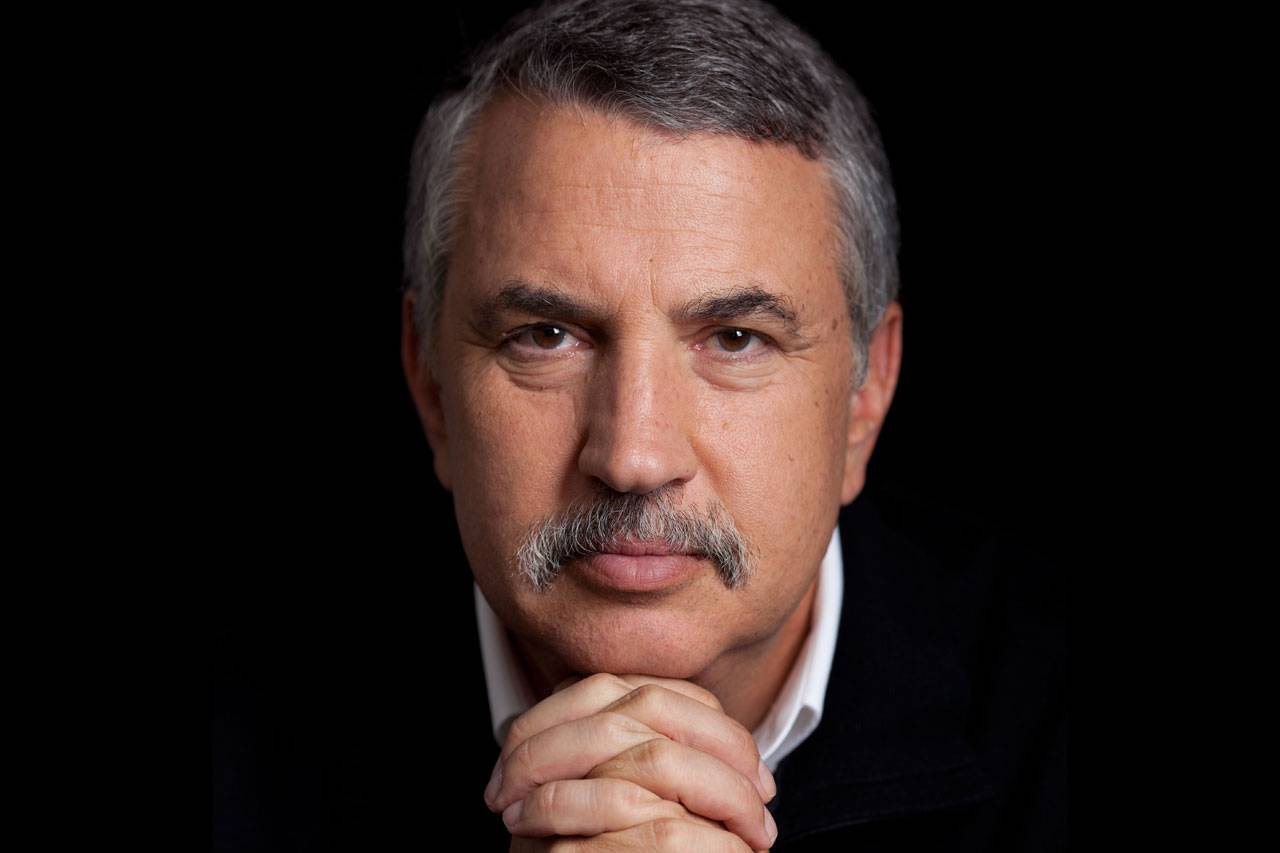Three-time Pulitzer Prize-winning New York Times journalist Thomas Friedman appeared on stage at FAU just hours before Russia invaded Ukraine—and Russian was first on the agenda.
The riveting Q and A entitled “The American Presidency Through a Global Lens,” was the first this season in a series of lectures sponsored by the Alan B. and Charna Larkin Symposium at FAU. Friedman spoke on a wide array of topics including the one question Putin cannot answer, “Tell me how this ends,” and on how connected the world has become, which makes it easier to transmit instability from one region throughout the whole system.
Prompted by questions from FIA Presidential Historian Timothy Naftali, Friedman easily moved from the history of NATO, his experiences with every president since George H.W. Bush, the inflated importance of social media (“It’s a giant smart aleck machine”), and his personal journey to becoming one of the world’s most respected journalists and columnists.
Friedman said he always tried to plumb the “outer edges” of how people behave, of technology (which inspired his well-received book, The World Is Flat), and of the natural systems at work in conservation, which can parallel how history is shaped politically. He addressed the tension between academics and politics, and the division that is widening in America, postulating that we are on a “foundational transition” now from our mission to make a more perfect union—by “re-litigating” who the “we” in We The People is.
It feels like forever since we’ve been able to gather and learn. It feels like forever since we’ve been able to collectively listen to a voice of reason and intellect, offering an historical and apolitical take on where we are right now in the world. When discussing how he approaches his work, Friedman stressed the importance of seeking human value and dignity in any position, and listening. Listening, he said, is how you learn.
For more information about the Larkin Symposium, visit www.fau.edu/larkin.







